
Accurate segmentation of bone structures is crucial for diagnosing fractures, planning surgeries, and monitoring the progression of diseases like osteoporosis.

Alla Dortman | August 20th, 2024
Let’s face it – every interview is a bit of a test, right? But when you find yourself in a stress interview, you might start wondering: “Is this really about testing what I’m made of, or should I be rethinking this whole gig?”
So, let’s break down what these stress interviews are all about, why companies use them, and how you can tackle them like a pro.
Basically, this interview style is the corporate world’s way of seeing how you handle curveballs. Unlike traditional interviews, which focus on professional skills and experience, stress interviews aim to reveal psychological resilience, the ability to make quick decisions, and maintain composure under pressure. Think of it as a sneak peek into how you might handle those “yikes!” moments at work.
So why do companies put candidates through these stress interviews? Well, there’s a bunch of reasons:
Companies use this approach in all sorts of industries, but you’ll see it a lot in fields where the stakes are high and things can change in the blink of an eye.
Let’s break it down, where you’re most likely to be involved in a stress interview:
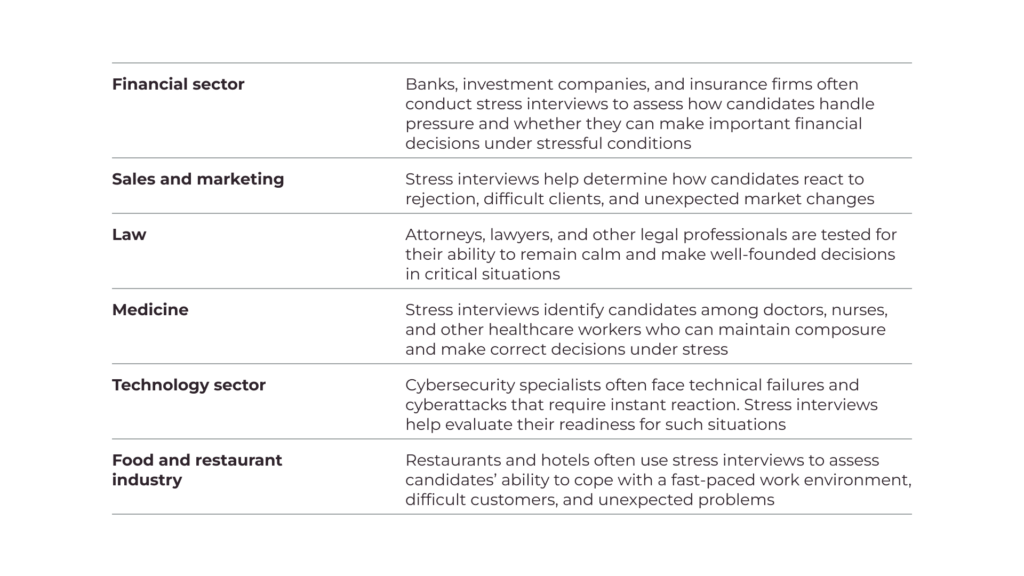
Let’s be honest – every job comes with its share of challenges. But at Setronica, we’re committed to creating a workplace where people genuinely enjoy coming to work. We take pride in how we treat each other, focusing on respect, open communication, and mutual support. We believe that when everyone feels valued and heard, it leads to better outcomes for all of us.
It’s a simple idea, really – a positive work environment brings out the best in people. While we’re not perfect, we’re dedicated to building a culture that makes a difference in how we work and what we achieve.
As the HR Director, I believe it’s crucial to clearly define our company’s human values and effectively communicate them to our team. Let me share what we stand for:
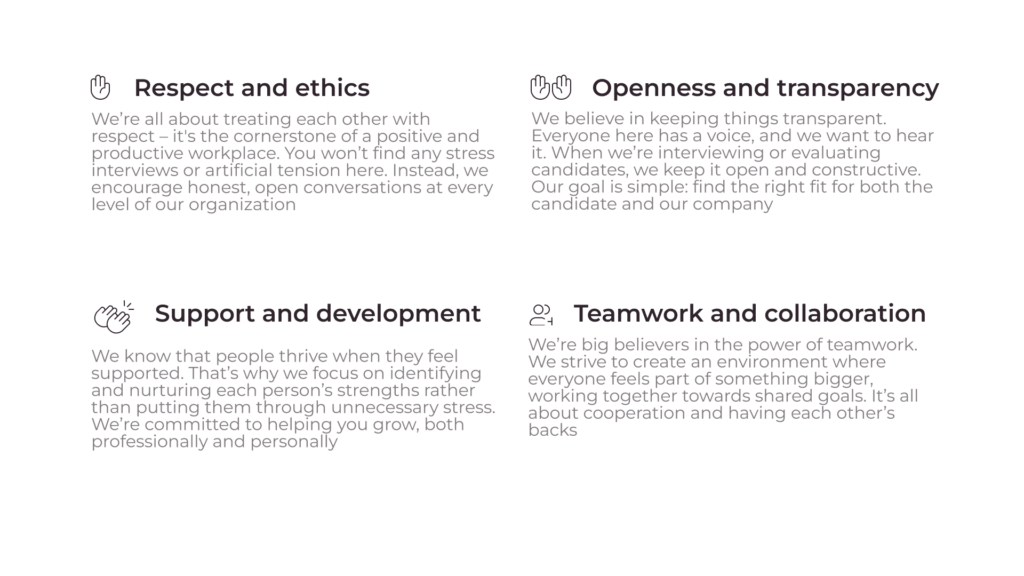
Not every tough interview is a stress interview. But there are some telltale signs that, when they start piling up, might suggest you’re in the middle of one. Here’s what to look out for:
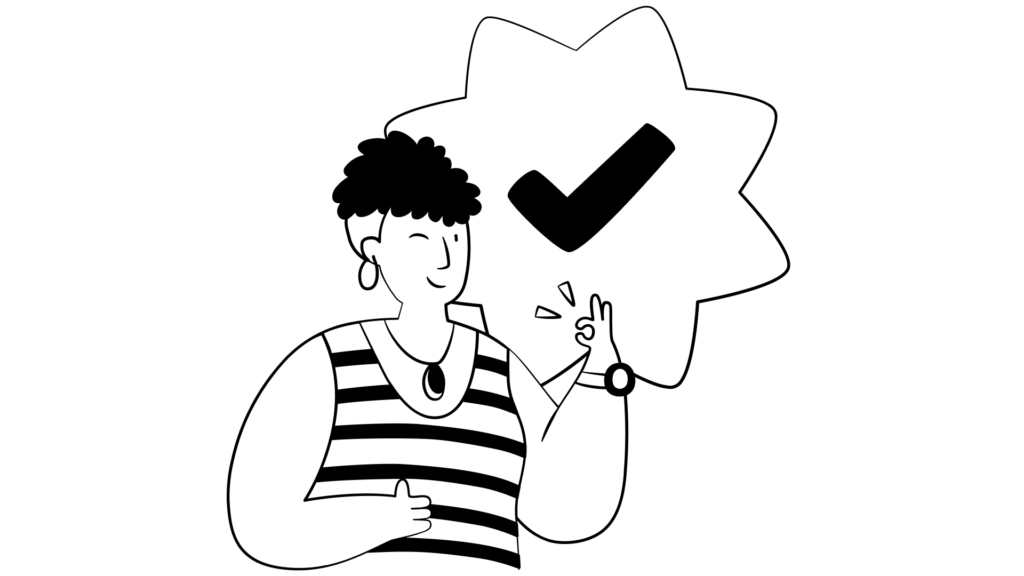
So, you’ve found yourself in a stress interview. Don’t sweat it! Here’s how to navigate these tricky waters:
Stay calm: The most important thing is to keep your cool. Control your breathing, maintain self-confidence, and don’t give in to provocations. If you notice that you’re starting to get nervous, take a deep breath and continue.
Don’t take it personally: Remember that the interviewer’s goal is to test your stress resistance, not to insult or humiliate you. Don’t take sharp or provocative questions personally.
Answer confidently and clearly: Try to answer questions confidently and clearly. Don’t be afraid to take a pause to think about your answer. It’s better to say, “Let me think about that for a moment” or “Can I clarify your question?” instead of rushing to answer.
Be prepared for surprises: The interviewer may ask unexpected questions or create non-standard situations. Be prepared for this and react with humor and composure. For example, if you’re asked an unexpected question, respond with: “That’s an interesting question. I think that…”
Demonstrate your problem-solving skills: Showing that you can solve problems quickly and effectively is a key point in stress interviews. Provide examples from your experience where you successfully dealt with stressful situations.
Maintain professionalism: Regardless of how tense the situation becomes, maintain professionalism. Avoid negative emotions, aggression, or defensive reactions.
Ask questions: If you feel that the interviewer’s questions are not relevant to the job, you can ask counter-questions to better understand the context. For example: “Can you explain how this aspect relates to my future role?”
View it as an opportunity: Use the stress interview as a chance to demonstrate your ability to work under pressure. It’s also an opportunity to show that you’re ready for any challenges and can adapt to non-standard situations.
Prepare in advance: If you know that you’re going to have a stress interview, prepare for it beforehand. Think about possible provocative questions and formulate answers. Practice with friends or colleagues to develop skills in responding to stressful situations.
End on a positive note: Regardless of how the interview went, thank the interviewer for the opportunity and emphasize your interest in the position. A positive ending will leave a good impression of you as a candidate.
Sometimes what feels like a stress interview may be a case of mismatched values. If your work style and the company’s are radically different, even a regular interview might seem stressful. For instance, if you’re all about open and honest communication, but the interviewer comes across as a bit… intense, it might leave you feeling like something’s not quite right.
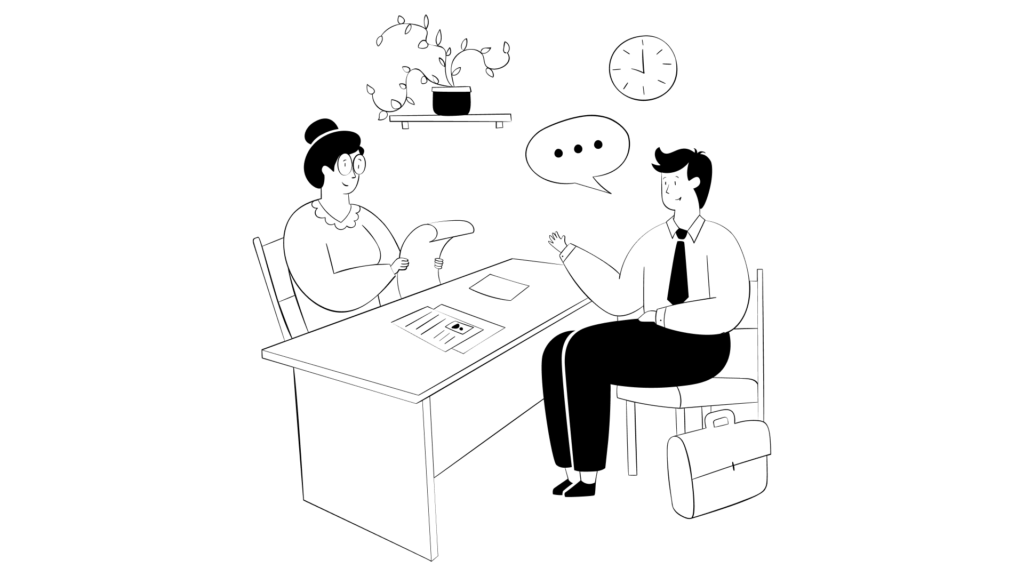
If you find yourself in this situation, it’s worth taking a step back and asking, “Is this the right fit for me?” Here are a few steps that can help you:
Evaluate your feelings. Think about how you felt during the interview. If their approach left you feeling uneasy or seemed a bit over the top, that might be a signal about the company’s culture. Ask yourself: Could you see yourself thriving in this environment?
Analyze the company’s values. Try to learn more about the corporate culture and values of the company. Check out their website, read employee reviews, or chat with someone who works (or used to work) there. See how their values stack up against yours.
Ask directly. Don’t be shy in asking about their culture and management style. Try something like, “How do you support your team when things get hectic?” or “What’s your secret for keeping the workplace positive?”
Feedback. After the interview, send a thank-you note and request feedback. This can give you additional information about how the company views interaction with potential employees.
Create an action plan. If you’ve decided that the company is a good fit for you despite some differences in values, think about how you’ll handle potential difficulties. If the disagreements are significant, it might be worth considering other employment options.
Make an informed decision. The decision to accept a job should be well-informed. Weigh all the pros and cons, considering both professional and personal aspects. Working in a company whose values don’t align with yours can lead to professional and personal burnout.
Here are some questions you might want to ask in an interview:
Work occupies a significant part of our lives, so it’s important that corporate values align with your personal beliefs and principles. It’s not just about whether they want you – it’s also about whether you want them. You’re interviewing them just as much as they’re interviewing you. The goal is to find a place where you can thrive, not just survive. So if you encounter a stress interview, see it as a chance to show off your grace under pressure – and to figure out if this company is really the right fit for you.

Accurate segmentation of bone structures is crucial for diagnosing fractures, planning surgeries, and monitoring the progression of diseases like osteoporosis.
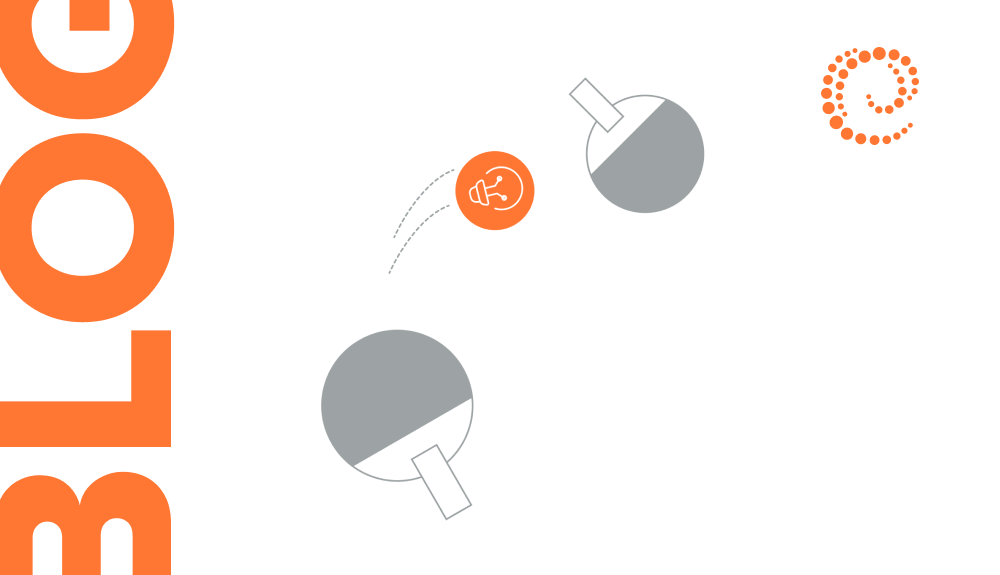
Accurate segmentation of bone structures is crucial for diagnosing fractures, planning surgeries, and monitoring the progression of diseases like osteoporosis.

With 12 years of experience in the HR field, I have conducted countless interviews.
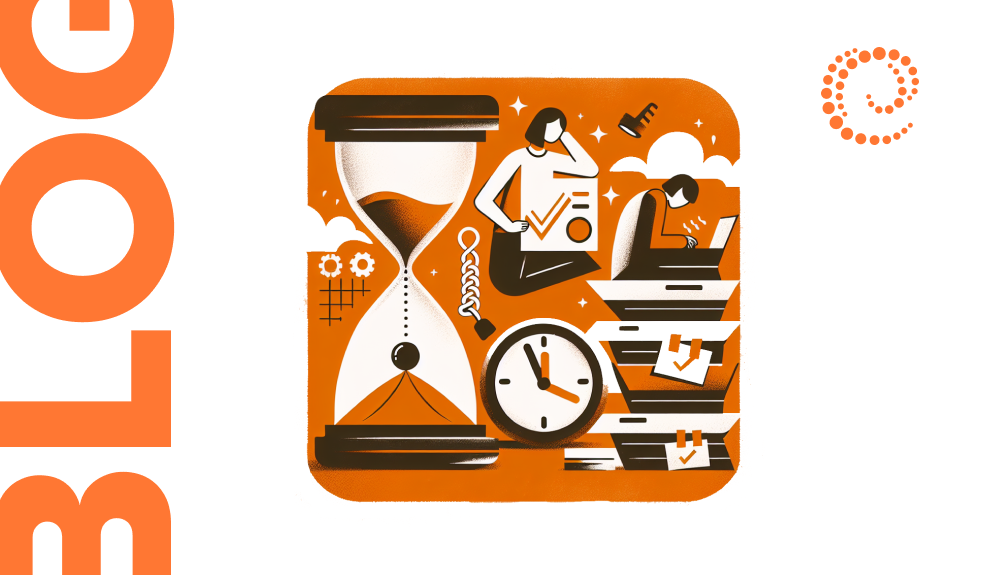
Productivity is usually about how many tasks you can complete in a certain time, like writing texts, doing code reviews,…

During my long HR career, I have conducted over 1000 interviews for a wide range of IT positions.

HRD, Certified career coach
Discover more about Setronica and explore exciting career opportunities by visiting our dedicated career page.
Setronica is a software engineering company that provides a wide range of services, from software products to core business applications. We offer consulting, development, testing, infrastructure support, and cloud management services to enterprises. We apply the knowledge, skills, and Agile methodology of project management to integrate software development and business objectives effectively and efficiently.
contact@setronica.com
+1 929 260 3113
Slovenia:
Kolodvorska 7, 1000 Ljubljana
USA:
211 E 7th St, Austin, TX 78701
© Copyright 2024 Setronica. All Rights Reserved.
